I grew up in an all-white community. When my family would get in the car to travel, and we had to pass through a neighborhood with people of color, I can still hear my mother telling us to "make sure the car doors were locked."
I can recall, from grade school to college, the infinite number of Black jokes that me and my friends would tell. We didn't know any better, but we should have, and now I feel humiliated thinking about the way we used to talk about Black people. It literally makes me sick.
It wasn't until I left college, went to Washington, D.C. to work, that I started to assimilate with people of color. In our small congressional office, I worked with a young Black man for a couple of years who I grew to love, and who died tragically after I moved away.
I bring him up because his memory made me think of something. I was in awe that his cousin was baseball great Willie Mays. And thinking back on the time in my life when sports consumed me, particularly baseball, I was obsessed with, and marveled at, Black players like Mays, Hank Aaron, Willie Stargell and of course my childhood hero Roberto Clemente. I don't remember ever thinking about them as Black, just as amazing players, mixed in with white guys such as Steve Garvey, Carl Yastremski and Mike Schmidt. They were all alike to me.
Maybe the reason I didn't notice their color was because of who they were -- famous all-stars that were different from the Black people who walked the streets we drove through, and who we ignorantly locked the doors for. Come to think of it, those streets were not bad at all. And those folks no different than anyone else. As I became a young adult and became more open about my sexuality and dated a few Black guys, the ugliness of "locking our doors" comment never popped into my head. Because I honestly didn't give the color of someone's skin a moment's notice.
But, now I'm noticing like never before.
The pain of this last week with the gruesome George Floyd murder, and closer to my home with the absolutely disgusting racist episode in Central Park, have made me angrier than ever before, and more cognizant of a person's skin color than at any other time in my life.
I'm trying to put my finger on why I'm watching Al Sharpton on TV, and seeing the color of his skin, and feeling his grief, his disgust, his valiant attempt to try and make sense of this madness. Or why I wish to be among the protestors to vent that anger, but in the same breath deeply troubled and distressed with the rioters whose destruction and disobedience drowns out the peaceful cries for change.
I feel so much sorrow for anyone who is Black right now. Not in a pitiful way, but in a way that is desperate to show compassion amidst the fury. I'm noticing skin color, and it pains me. When I take my runs now, and I pass a few people of color, I say hello and smile. In reality, I want to cry and hold them. I want to do something, anything, to make them feel like they are loved beyond words.
And the anger? Is it because, as a middle-aged white man I'm in the same demographic of the cops who killed Floyd? Or that I'm white like the person who called the police on an innocent African-American birdwatcher in bucolic Central Park? Or I'm the same color as the criminal white men that have been running this country for the last three years? Pasty males locked in positions of judicial and legal power across decades and centuries? Who torment, taunt, and sentence black people for petty crimes and have dirtied and soiled the criminal justice system? Am I self-loathing about being a white man? Frustrated beyond pale -- literally -- that I can't do a damn thing about what's happening to people of color? Except say hello and smile when I pass them?
But then again, who the hell do I think I am that I can feel their anger, smile at them out of compassion, or more to the point even have the audacity to write about all that's going on? Words seem so meaningless when there's a foot to your throat and you can't speak. Or tear gas, broken windows, graffitied churches, burning buses and patrol cars smoldering in neighborhoods. Yet something needs to be said, spilled out, spelled out. There has to be some meaning? But how do you do that when you haven't walked the shoes of a Black man, or had the shoes of a white man on your throat?
This is a weak comparison, but as a gay man, maybe I do have a bit of sense about what it feels like to be treated differently. And I know in our community, a lot of us feel the same way. How many times do we have to read about violent gay hate crimes? Or listen to an evangelical tell us we're all going to hell? Or hear about another senseless killing of a transgender person, most recently a Black transgender man in Florida? Or see gay bars defaced and damaged? We have our share of anger in our community for sure; but, how can white LGBTQ+ people possibly even begin to comprehend how it feels to be a Black person in America?
I cried when Barack Obama was elected president. Most of us probably did. It was the realization that finally -- finally, maybe, quite possibly his election started to put a lid on the rampant racism that existed for over two centuries. We could finally turn the page, and as a gay man, I remember thinking that Obama also stood somewhat for us. We were finally getting a president who deeply understood what discrimination was all about. Maybe he didn't understand it from a sexuality point of view, but it was no doubt part of the equation. At least it was for me.
Then Trump was elected, and the lid that Obama tried to screw shut was blown off the jar. The anger that can't quite decide where to go, gets glaringly pointed in his direction. His vile tweets, "both sides" comment, reference to Baltimore's inner-city as "rat infested," and his rancid behavior during this calamity. Calling protesters "thugs," threatening to release dogs and weapons on protesters, worrying only about himself barricaded in a fortress.
At a time when our country needs to hear words of healing, we see his selfish, divisive tweet-vomits of incitement. He tries to divert attention with misplaced announcements of trade issues and rockets blasting upward to space, ignoring the ones that are fired to diffuse incensed and incited crowds. Does he hear our country crying? What purpose does Trump serve other than to soil, instigate, then ignore the problem of racism in America? How in God's name did we let him happen?
He seems infinitely small, petty, and unempathetic to an extreme. His callousness repugnantly feels no pain.
We are a deeply wounded country. This past week has violently ripped the scabs off the festering problems that we've been warned about for years. Colin Kaepernick's prophetic harbinger to us that people of color would take lethal knees. America has been brought to its knees in pain, and we need to further drop to our knees in prayer, making a desperate plea to God to heal our brokenness.
Sadly, I feel like that's maybe all we can do right now? Will these protests mean anything? Will all this violence and unrest release the enormity of the pain? Will burning buildings and over-turned cars unleash more upheaval? How much more can our country handle? Add a pandemic to the senseless murder, both eerily inflicted with inability to breath.
Will anyone fill the vacuum of leadership and provide soothing words and a hand to guide us in the right direction? Will the charges of murder against the ex-officer bear any consequence? Will people actually go out and vote and make a change? Get rid of the real thugs in Trump and his barons of bigotry? Will words written on a page only be cathartic until the next piece of prose about rage, racism, and revulsion is typed and posted? Another middle-aged white man snuffing out a black man?
We have a long way to go. A very long way to go. But rather than lock doors -- or throw rocks through them -- perhaps we open our hearts, and do our best to love each unconditionally. It's really all this gay, middle-aged white man can think to do.
John Casey is a PR professional and an adjunct professor at Wagner College in New York City, and a frequent columnist for The Advocate. Follow John on Twitter @johntcaseyjr.
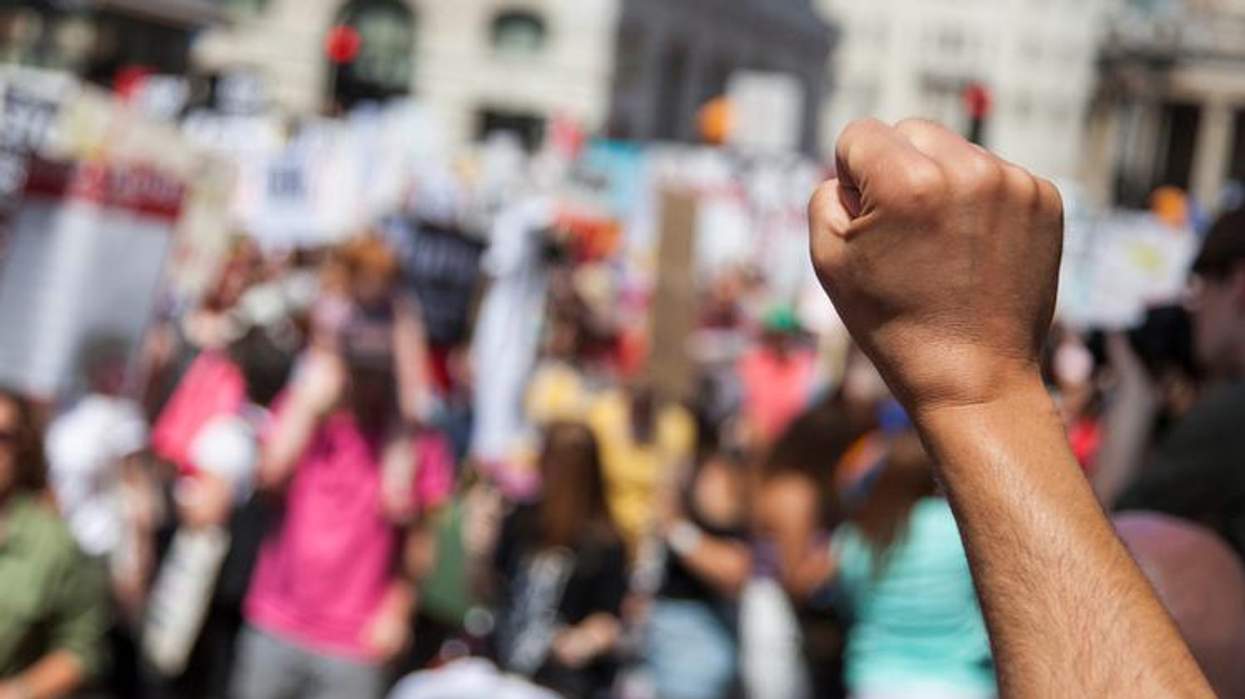
















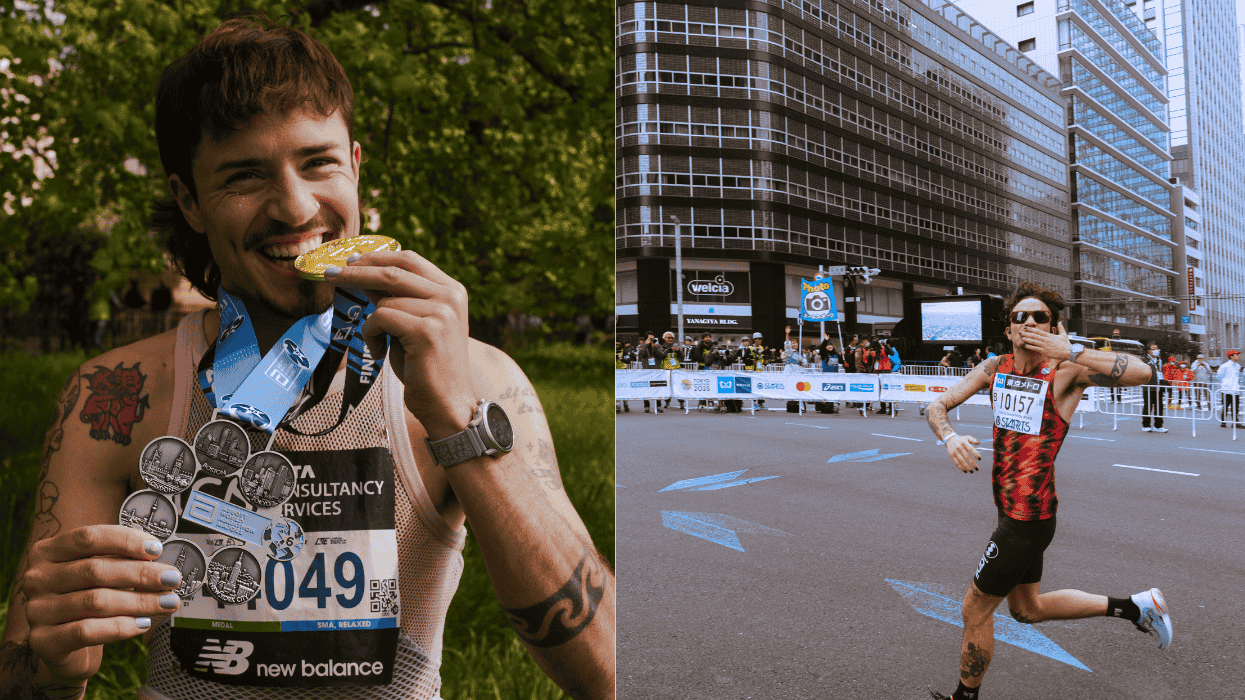












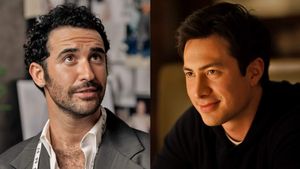









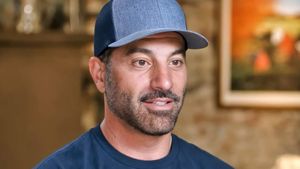






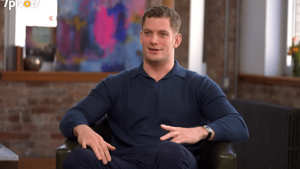





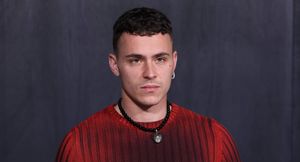












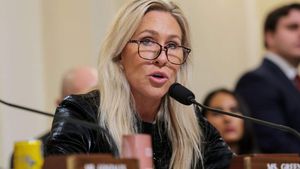


Charlie Kirk DID say stoning gay people was the 'perfect law' — and these other heinous quotes